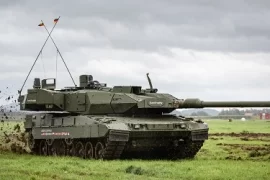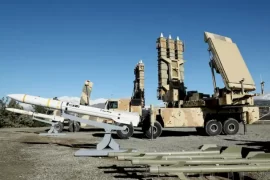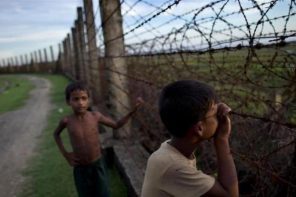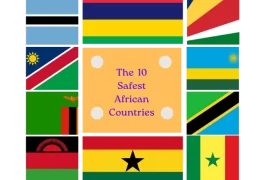A year back, I, along with a few of my fellows, worked on a project about great power responsibility and the evolving nature of the norm of humanitarian intervention, reflecting on the theoretical debate within the Rationalists: pluralist and solidarist. The debates divide scholars and political leaders alike into two very definite blocks with one side arguing that great powers attain minimalistic responsibility to maintain international order, while the other pushing for the maximalist programme of accomplishing international justice , respectively. This debate divides the very powers that it concerns: great powers and their outlook on their responsibility towards the international community. (1) Some great powers, along with the pluralist scholars, believe that humanitarian interventions are mere tools for powerful states to step over a weak state’s sovereignty. Hence, the faultline of this debate is not use of force but rather the way that force should be used by such powers. And this is exactly what we see in the Syrian war today.

One only needs to look at how the two blocks of great powers are justifying their use of force in the Syrian conflict. Russia, along with China, has always been reluctant to allow humanitarian interventions. Hence, in the Syrian case the Russians at least have come out front and used their power in line with the norm of sovereignty rather than humanitarian intervention, pushing the world into a stalemate on the issue of what constitutes the legitimate norm, now that they are in direct conflict with having the support of at minimum one great power. The Russian side with its pluralist approach argues to be aiding a legitimate government to eradicate the fundamentalist factions of society that is terrorizing the country. Also, this terror, the Russians argue, will spill over disturbing international order. Their argument is in line with the pluralist block of the Rationalists invoking arguments of established norms and laws that protect a legitimate government’s sovereignty. Russian President Vladimir Putin, when asked about his involvement in the war, replied that Russia’s activities are limited to supplying weapons to the Syrian government, training personnel and providing humanitarian aid for the Syrian people. “We act based on the United Nations Charter, i.e. the fundamental principles of modern international law, according to which this or that type of aid, including military assistance, can and must be provided exclusively to the legitimate government of one country or another, upon its consent or request, or upon the decision of the United Nations Security Council,” Putin told CBS’s ‘60 Minutes’ show. (2) On the other hand, the Russians are criticized by the US for exactly that. According to the US State Department, Russia is delaying a political settlement because it “continues to shore up Assad to strengthen him.” Russia is, time and again, justifying its involvement as using force in aiding and helping a legitimate Syrian government. Putin further explains his involvement by saying: “There is only one regular army in Syria – the army of President Bashar Assad. And he is confronted with what some of our international partners interpret as an opposition. In reality, Assad’s army is fighting against terrorist organizations.” (3)
There is another great power (China) that is dealing with this whole crisis a little differently; opting to sit on the sideline of this debate, not taking any sides so far. China, always reluctant to use force, has yet again decided to remain as aloof as possible on the Syrian issue. However, it initially aided the Syrian government in the fight against Islamic State (IS, formally ISIL/ISIS) by sending “military advisers”, media reports have claimed. “The Chinese will be arriving in the coming weeks,” a Syrian army official told the Lebanon-based news website Al-Masdar Al-‘Arabi . (4) But now, rather than banding up with any of the two sides, it has chided both the Russians and the Americans for their role in the conflict, and China’s ruling Communist Party asked the two powers to stop playing a Cold War game, igniting the Syrian conflict into a full blown proxy war . (5)
Nicholas Wheeler, in his book Saving Strangers: Humanitarian Intervention in International Society, argues that the solidarist argument of mobilizing force in the name of saving non-citizens is … ground by the day. He argues “the normative context has changed markedly”. (6) He reaches this conclusion by analyzing seven Cold War and post-Cold-War cases (7) , where he shows a gradual acceptance of the norm of invoking outside help to save citizens from the cruelty of their own governments. However, in our project we show that with China’s veto in eleven different cases a block of the great powers, China and Russia, has always been reluctant to fully embrace this new norm. (8) This block, we conclude, is getting bolder in blocking Humanitarian Interventions as they are gaining more confidence both as the result of increase in their economic power and the failed outcomes of the previous Humanitarian Interventions such as Iraq, Afghanistan and Libya, where countries seem to be in far worse shape than they were under their ‘tyrant’ governments. With each case the pluralist argument of maintaining order before justice gains strength and so does the confidence of the block of great powers against Humanitarian Intervention. This explains the stalemate, or rather the chaos, in the Syrian case.
BACKGROUND
In four and a half years, the Syrian war that began as an anti-government movement grew into a full blown civil war — more than 250,000 Syrians have lost their lives and about 11 million more have lost their homes. In March 2011, anti-government protests erupted in Derra city, where government security forces opened fire on demonstrators, killing many. As a result, many more took to the streets. This unrest triggered nationwide protests demanding President Assad to set down and resign. By July 2011 the protests had gathered even more support and hundreds of thousands were taking to the streets, eventually taking up arms either to defend themselves or to expel security forces from their areas.
Soon violence escalated leaving the country in the throes of a civil war as rebel groups started organizing brigades to battle government forces for the control of towns, countryside and cities. In 2012, violence reached the capital Damascus. The UN claimed that 90,000 Syrians had died as a result of the conflict. And by 2014 the number of the dead doubled since 2013, increasing yet again in 2015 to around 250,000. Meanwhile the conflict has become more complex than when it started. Not only has it grown in violence but has also seen a division in ideologies (sectarianism, for e.g.); Sunnis and Shias are fighting amongst each other, along with the involvement of great powers and neighbouring countries.
With this array of conflicts within the Syrian war, there have been major human rights violations from across the continuum of parties involved. War crimes like murder, rape, torture, and enforced disappearances have become routine, according to UN commission of inquiry in charge of investigating war crimes in March 2011. (9) And these grave war crimes have been committed by all parties involved in the war.
DIVISIONS IN REST OF THE WORLD ON SYRIAN WAR
What started off as an anti-government movement and a continuation of the Arab Spring became a violent proxy war with most of the regional and world powers involved. These powers are mostly divided into pro and anti-Assad groups. Apart from the great powers discussed earlier there is an array of states that are involved in the conflict, both directly and indirectly. These states are: Saudi Arabia, Iran, Turkey, Lebanon, Qatar, UK, France, along with many others.
Iran and Russia are on one side of the conflict: the pro-Assad block, with their pluralist arguments of aiding the legitimate Syrian government against the troublemakers within the country. In order to maintain international order, they argue, it is their duty as the member of international community to aid genuine governments to tackle rebels inside the country. The BBC reported that Tehran is believed to have spent billions of dollars to provide Assad with weapons, military advisers along with lines of oil and credit. (10) And Moscow officially launched an air campaign against opponents of President Assad in September 2015. This block is joined in by the Lebanon’s Hezbollah movement which has been supporting the President since 2013 . (11)
Turkey, Saudi Arabia, Qatar and many other Arab States along with western powers such as the UK and France are aiding anti-Assad forces with the help of the US. This US-led coalition enjoys significant support from Kurdish militia fighters. (12) They defend their involvement in the conflict with a solidarist argument of the Syrian government being involved in mass atrocities. However, this coalition seems to support different factions of the opposition that have different interests. The US supports Syria’s main opposition alliance, the National Coalition, by providing them with limited military assistance. (13) Saudi Arabia, on the other hand, is a major financial and military supporter of several rebel groups including the hardliner Islamist groups. Saudi leaders were angered by the limited US involvement, especially when the US decided against intervening militarily in the conflict in 2013. And they later joined the US-led coalition air campaign against IS . (14) Another key state of this coalition is Turkey which is also a neighbouring country of Syria, and the country that is most affected by what is happening across the border. A large number of refugees fleeing is one of the issues that Turkey is faced with as a result of the war that has resulted in almost two million refugees and overspill of instability into its territory. President Recep Tayyip Erdogan has always been a staunch critic of his Syrian counterpart on the same humanitarian grounds as the US and most of the countries in the coalition. They, however, disagree with the coalition’s support for the Syrian Kurdish Popular Protection Units (YPG) – an affiliate of the banned Turkish Kurdish Workers’ Party (PKK) . (15)

FUTURE OF HUMANITARIAN INTERVENTION
With this many divisions within the solidarist block, i.e. the US-led coalition, the argument they are making seems to be losing power against the pluralist case Russia is building with full military and diplomatic backing. Moreover, if one looks at the solidarist justifications in Iraq and more so in Libya, in both cases the countries seem to be in far worse shape than that under their tyrant regimes. Legitimacy is a fluid concept that changes with time: “Principles of legitimacy are born, grown up, age, and die; sometimes they clash. Their life cycles and their clashes are the invisible foundations of history”. (16)
The current clash over Syrian war, therefore, indicates a possible change in the current normative landscape in the international arena, even though it is not mature enough to claim the beginning of a normative shift. According to Clark, at all times three cognate concepts have constituted the ‘legitimacy’ terrain. These are: legality, morality, and constitutionality. And it is amongst these three norms that the practice of legitimacy takes place. (17) Right now we can see contestation of legitimacy based on the norms of legality and morality, at least in the great power club, with Russia pushing for a normative shift in favour of legality and the US trying to sustain the somewhat post-9/11 consensus based on the norm of interventions for humanitarian purposes. As mentioned earlier, it is still premature to claim which norm will have the backing of the wider international community. But the Syrian case, nonetheless, shows clearly a divide in the great power club on the issue of the legitimacy of the way force should be used in situations that locate themselves on the seams of legality and morality. Should it be in order to maintain international order by means of aiding legitimate governments to crush its fundamentalist factions, as the Pluralist argues, or should it be more in line with the Solidarist way of protecting non-citizens from the atrocities of its own governments?
REFERENCES
- See Ian Clark (2003) ‘International Legitimacy in World Society’.
- RT news 25.10.2015 ‘Assad to Putin at Moscow talks: Terrorists would seize larger areas if Russia did not act.
- Ibid.
- RT news
- Japan Times 13.10.2015
- See Wheeler (2010) Saving Strangers: Humanitarian Intervention In International Society p. 1
- East Pakistan, Cambodia, Uganda, Iraq, Somalia, Rwanda, and Kosovo
- Iraq, Somalia, Haiti, Rwanda, Kosovo, Responsibility to Protect, Darfur, Myanmar, Zimbabwe, Libya and Syria.
- Independent International Commission of Inquiry on the Syrian Arab Republic (2011).
- BBC ‘Syria: The Story of the Conflict’, 9th October 2015.
- Ibid.
- Ibid.
- BBC ‘Syrian Crisis: Where Does Key Countries Stand’,2nd October 2015.
- Ibid.
- Ibid.
- See G. Ferrero (1942) ‘The Principle of Power’ p.49
- See Ian Clark (2005) ‘Legitimacy in International Society’, p.20.







